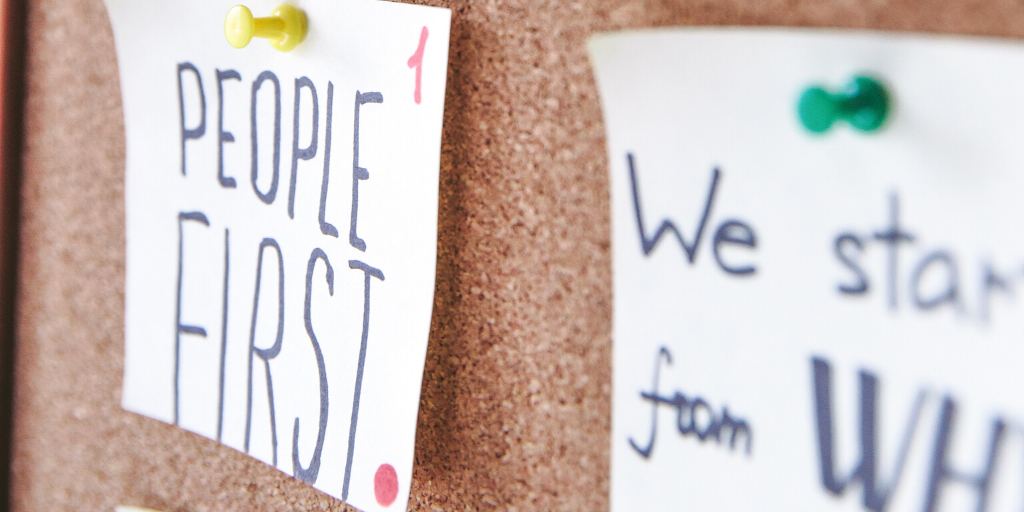Stakeholders are those who can positively or negatively affect the outcome of an initiative, program, or project.
Without proactive engagement, understanding unique concerns, and proper communication, deficient stakeholder engagement can lead to unforced errors, poor risk management, and a lack of resources to resolve issues.
After all my years of experience, I know that to gain support for projects and programs, the sponsors must engage a diverse set of stakeholders and understand their unique interests. It is with a proactive engagement strategy, you can efficiently communicate, gain understanding, and increase support. A strategy makes the difference between success and failure.
I call this approach the community blueprint.
The 3 keys to creating an effective community blueprint include:
- Due Diligence
Due diligence in identifying stakeholders and understanding their needs and wants. At the beginning of any strategic initiative, creating a framework to identify the different affected groups and relevant pain points, allows you to map out effective buy-in strategies. We typically accomplish this through market research, engaging relevant Thought Leaders, and team chartering sessions. While complex initiatives will undoubtedly shine a light on some inefficiencies, proper due diligence should address those adequately in a pro-active and authentic manner in order to communicate the overall impact of a project’s “WHY”.
- Champions
Identifying champions for the overall effort and gaining local advocates. Proper engagement during due diligence typically leads to identifying key and ideally diverse representatives who understand the need for such an initiative, its potential roadblocks, and are committed to its success. These individuals or groups are often passionate, incredibly knowledgeable, and willing to take action to move projects along – as well as having the power/influence to help create other champions. Third-party champions often bring the benefit of added credibility in advocating for a project and/or public policy position, in addition to the party with the vested interest.
- Transparency
Being able to communicate both the challenges of the effort and its overall impact upon success. If an organization commits to the two stages above, the outcome should be a strategic roadmap with well-defined and understood milestones and deliverables. Sometimes those milestones or expectations may change, and authentic transparency leads to everyone being ‘in the know’ with what is working and not working. Being able to go back to early champions or stakeholders and acknowledge changes, however challenging or difficult it may be, can also help manage the reputation of the project. This generally includes sharing ongoing progress of the project/programs to further reinforce transparency and credibility about the value of the various stakeholder relationships.
A Well-Executed Community Blueprint
A prime example of a well-executed community blueprint is the opening of Cubic’s Western New York Operations Center. This blueprint included an aggressive and proactive outreach to MWBE firms and the creation of jobs in western New York – both major state priorities.
While the initial business function behind the Operations Center was to support the MTA’s OMNY delivery, Cubic has since committed to growing additional functions such as finance at the Western New York Operations Center. In order to open the Western New York Operations Center, the team worked closely with state and local representatives, the Empire State Development Corporation, several economic development organizations like Invest Buffalo Niagara, and local MWBE businesses.
The resulting outcome was celebrated in September 2019 at a ribbon-cutting ceremony attended by over 50 leaders representing state, local, and business interests. Future benefits for the whole community include working closely with local universities to build career development opportunities; collaborating with other local employers to provide additional benefits to employees; or even long-term, supporting the demand for additional public transit services.
For a community blueprint to truly succeed, it must be authentic, transparent, and constantly reinforcing its impact. Why?
Because every community is unique, and every strategic initiative represents multiple, unique benefits for that diverse community. Being able to align the character of a community and understand its needs and wants can lead to community acceptance and successful execution in a project, program, or initiative.
Demonstrating that commitment to the larger community might just let you stick around a little longer to deliver on the next project.
Deborah Wathen Finn has 35 years of experience in the transportation industry with a record of effective leadership and innovation in public and private sector organizations and a commitment to the community and civic service. A proven executive in leading both private and public sector organizations in transportation, infrastructure, and technology, Deborah has created revenue growth, improved market position, developed stakeholder support, and transformed operations. She has led organizations of various sizes including several organizations with unionized workforces.
As president of The Wathen Group, Deborah provides strategic consulting assistance to clients on strategic planning, crisis management, and negotiations, as well as transit and rail operational issues. She also conducts business development for clients ranging from start-up ventures to established global firms. Deborah has previously held executive-level positions with major infrastructure firms where she has effectively developed transportation and security-based practices at regional, national, and global levels.
Deborah serves on the Executive Advisory Board of SmartDrive, a California-based startup technology firm that utilizes automobile driver performance-based technology to provide sustainable improvements in driver and passenger safety resulting in cost efficiencies. She is active in community and trade organizations. She also serves as vice-chair of the Yarmouth (Maine) Economic Development Advisory Board.
Deborah holds a B.A. in Government from Colby College and an M.A. in Political Science from Northern Illinois University.








